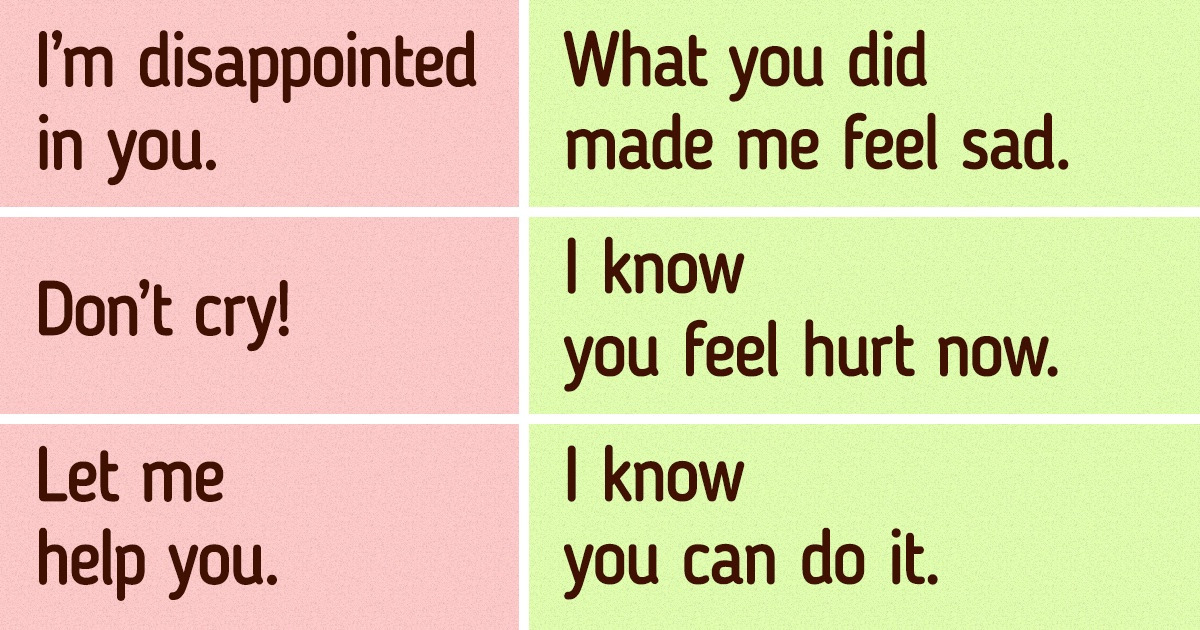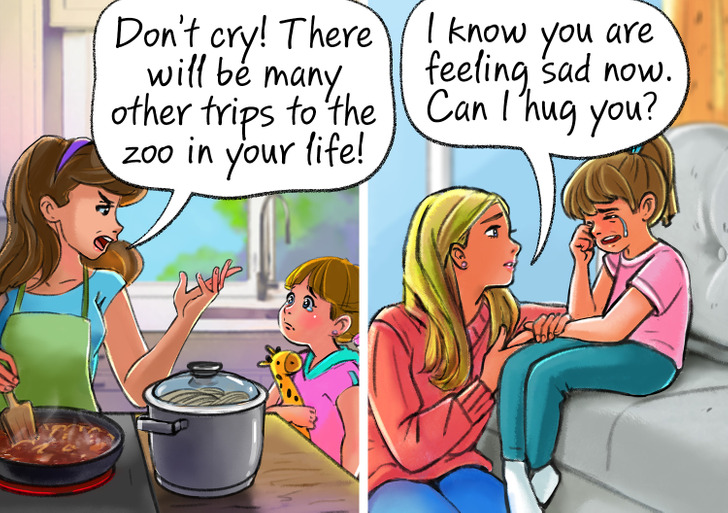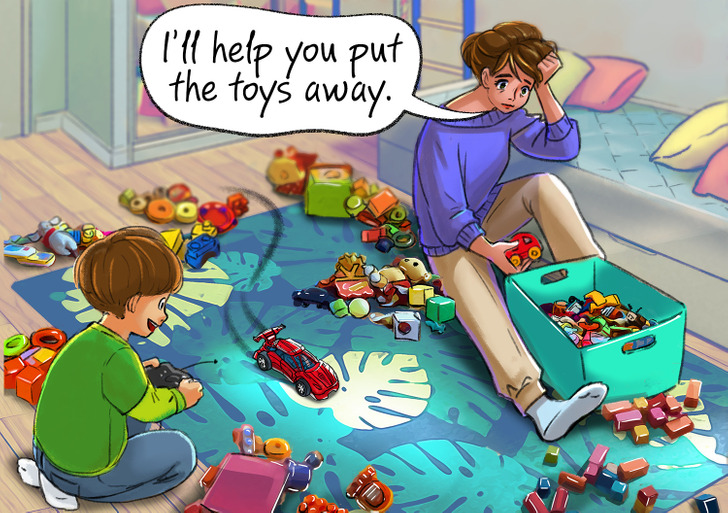How to Talk to a Kid

There is no such thing as perfect parents. Sometimes we all make mistakes when raising kids. However, even the way we talk to kids matters because it affects the way kids perceive themselves. And even seemingly harmless words can cause a kid to lack confidence and affect their self-esteem negatively.
5-Minute Crafts found out what phrases parents should avoid when talking to kids and what to replace them with.

1. “I am ashamed of you,” or “I am disappointed in you.”
Parents can be justifiably angry or upset by their child’s behavior, like if they’re being disrespectful to teachers, throwing tantrums, or not doing their housework. However, if parents use the aforementioned phrases, the child may consider themselves a disgrace to the family, feel ashamed of their behavior, and feel guilty. These are destructive experiences for the child’s psyche.
- A better way to say it: “What you did made me feel upset/angry, but I still love you.”
2. “Don’t whine!” or “Don’t cry!”
It’s necessary to teach your kids to express their emotions instead of suppressing them. Help your kid to realize their feelings. Even if a child’s cry drives you crazy or the reasons for this cry seem insignificant to you, remember that at this particular moment, your kids are suffering and need some comfort. It’s important that parents learn to accept and admit a kid’s feelings. This will help children learn psychological self-regulation — after you acknowledge their feelings, it will be much easier for them to overcome their anxiety and regain composure.
- A better way to say it: “I know you are feeling sad (hurt/insulted) now. And it is normal to cry when you feel bad. Can I hug you?”
3. “What’s wrong with you?!”
This phrase can be said when your tone is compassionate and you are wondering if they want to share their feelings with you. But when you ask this question while irritated, that’s a different thing altogether. In this case, the parent or a person the kid trusts and depends on indicates that something is wrong with the child. The kid will l learn it and believe it to be true.
- A better way to say it: “What is bothering you? I don’t like your behavior and I want to pay attention to it.”
4. “Leave me alone.”
When you say to your kids, “Don’t interrupt me,” or “I am busy,” they perceive it as parental rejection, which is very painful for a child. Moreover, if such a communication pattern sets in when kids are little, the likelihood that they will be sharing things with you when they grow up is very small.
A better way to say it: “Give me some time to finish what I am doing and we will talk.”
5. “No dessert until you finish your dinner.”
Don’t use dessert as a reward. It creates false statements for kids — as if other foods are not that good.
- A better way to say it: “We need to eat healthy food to make our bodies strong. What would you rather have: apples or cherries for dessert?” You can also use the following expression: “First we eat our meal, then we will have a dessert.” Changing the wording, though subtle, has a more positive effect on your child.

6. “Let me help you.”
When your kid is trying to build a brick tower, trying to do the dishes (though not very confidentially), or making their bed, it’s quite natural for you to want to help them. But you shouldn’t do this. If you start helping your kid, it will affect their independence and self-sufficiency negatively. When we do a lot for our kids, we deprive them of the possibility to shape up necessary life skills.
- A better way to say it: “What do you think the best way to do it is? Why?”
That is, it is better to ask open-ended questions that will help solve the issue. Or say, “I know that you can do it. I saw you do it before. I am sure you’ll figure it out.”
7. “Because I said so!”
The authoritarian method of raising kids is a thing of the past. It has already been replaced with cooperation and respect. Children are naturally curious and active. And it is better to speak frankly with them and justify your position.
- A better way to say it: You can use the phrase, “When...then.” For example, “When you finish your homework, then you can go for a walk,” or “When you’re done cleaning, then you can watch a cartoon.”
8. “You spend too much time on your phone,” or “Put your phone away right now.”
Children live in their own social world, which is quite different from ours. Social networks and games on a phone are equivalent to questionnaires or visits to gaming clubs that were popular in our childhoods. Would we have liked it if someone told us to stop doing that in our lives?
- A better way to say it: “How much time do you need to finish what you are doing?” or “Do you want to go to the library and pick out some new books?”
9. “Good job!”
From a reward and self-esteem point of view, it is more important to outline how your child achieved what they wanted. Phrases such as “Good job!” or “You’re amazing!” become insignificant words over time.
- A better way to say it: “You worked well to achieve that!”
10. “Wait until your father comes home!”
A kid’s parents are equal and neither of them should be used as a threat. Keep the parents together, like one team. Moreover, shifting responsibility to someone else undermines your authority. All because the child will think, “Why should I listen to Mom if she’s not going to do anything anyway?”
- A better way to act: Try to solve the issue yourself without turning the kid’s mother or father into a “bad cop.”